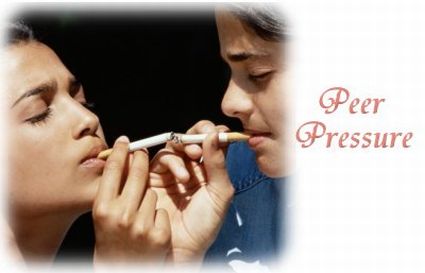How many times were you forced to drink by your peers when you were a teen? Do you recall that? Not only for teens, but also for young adults, peer pressure can be a problem. A recent study finds out that ability to resist the peer pressure depends on the strength of how well certain areas of the brain are connected.
A recent study by University of Nottingham shows that certain areas of the brain are responsible for decision making. Here’s more on the study.
The study:
Prof. Tomas Paus of the University of Nottingham, along with his colleagues picked a group of adolescents. The method he used for the study is neuroimaging. These adolescents watched video clips of neutral or angry hand and face movements. The subjects were also asked to fill out a questionnaire.
35 ten year olds were involved in this study. Some of these kids were previously subject to peer pressure while, some others weren’t. So, there’s a mix and match of both kinds. The study was conducted with the grants from Santa Fe Institute Consortium and Canadian Institute of Health Research.
The result:
The study shows that the prefrontal cortex of the brain is responsible for the unwanted behavior. This is mainly to be blamed for peer pressure related actions. According to prof. Paus:
This is important if we are to understand how the adolescent brain attains the right balance between acknowledging the influences of others and maintaining one’s independence.
All children showed some form of activity in the regions of the brain, which was mostly involved in the planning and social cues. It was also discovered that the strength of connectivity for these children are much stronger if they are not subject to peer pressure.
Future studies would be more of a follow up on these subjects. I think this is a great study although, it seems like there are some generalizations made about it. This was published in the Journal of Neuroscience. Hopefully, the future studies will yield interesting behavioral information.
Image Credits: Evc, Arizona





